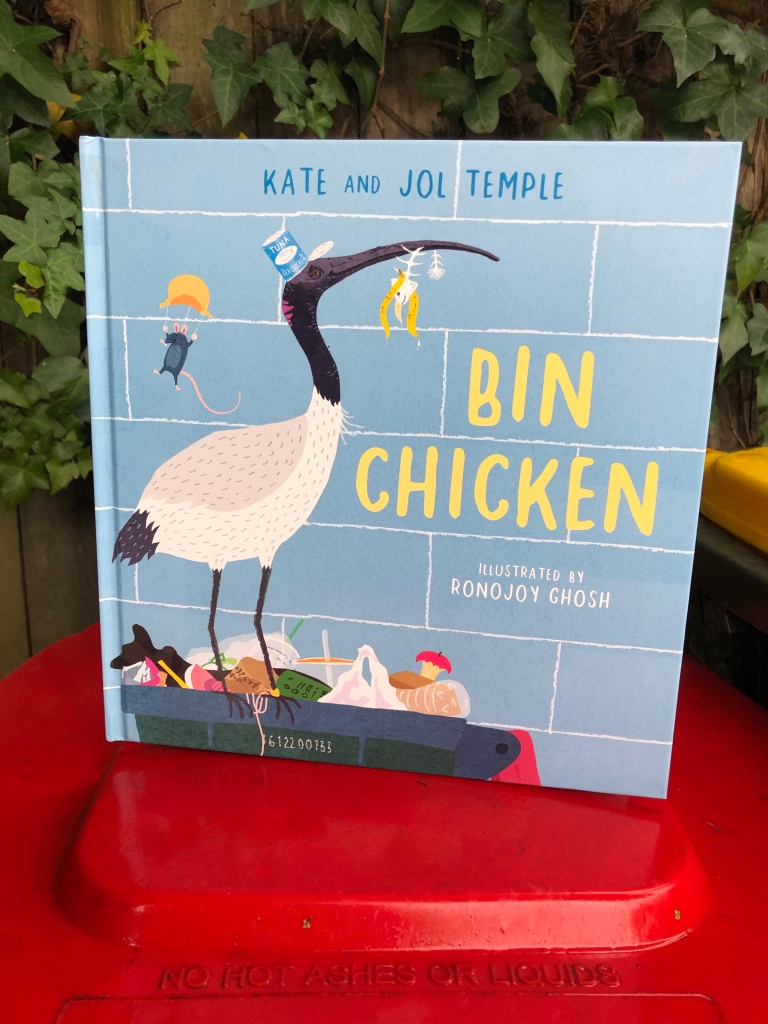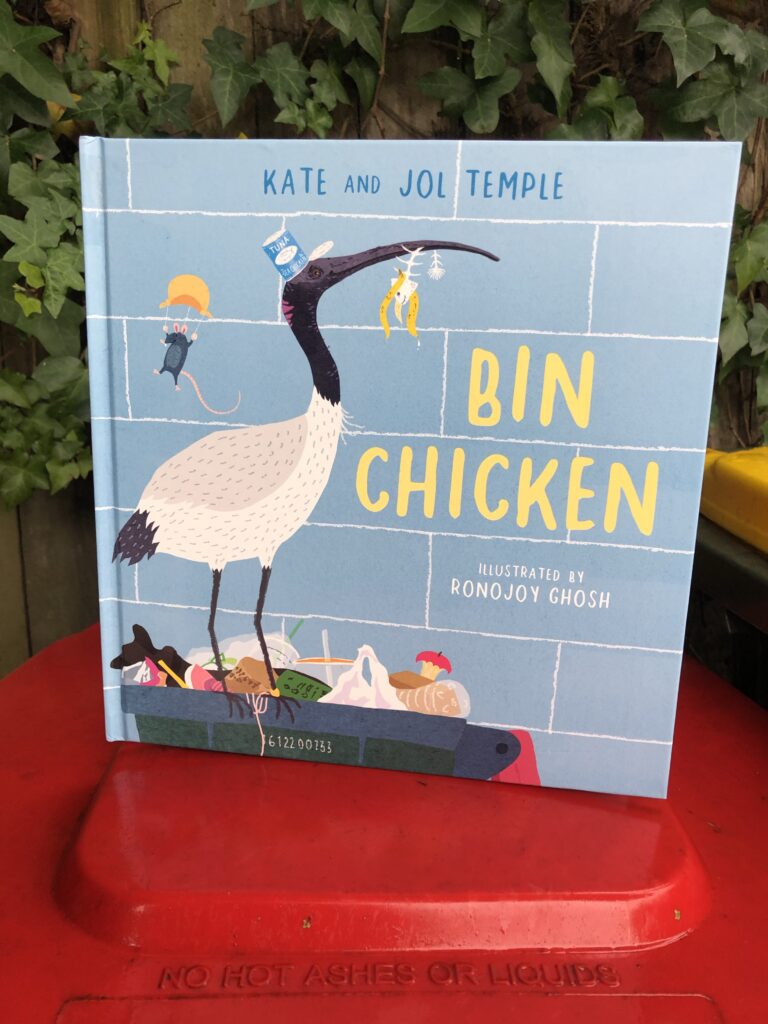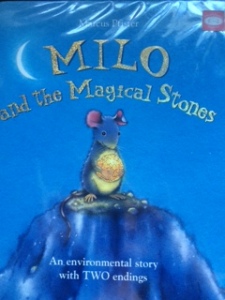In an ancient land, many moons ago, where Pharaohs rule and palm trees grow, lived a sacred bird with feathers all white, an elegant beak and wings of a kite.

The first question I asked students when I read this story out loud was “Have you ever had your lunch stolen by an Ibis?” – of which every child replied “YES” with many distressing stories of lost sandwiches, beaks opening lunch boxes and even chips being stolen straight from the packet!
‘Bin Chicken’ by Kate and Jol Temple is a funny yet informative new book about the Ibis – a bird that we love to hate.
Rats of the sky, Trash Turkeys, Dumpster Ducks or more commonly known as ‘Bin Chickens’ this once graceful bird revered in ancient Egypt, is now a city dweller who rummages through bins seeking out tasty treats and trash in order to survive.
The Australian Ibis, a bird that once lived in marshy wetlands and open grass fields has had to learn to adapt to its natural habitat loss – and being a survivor, it has done this very well. Rather than living in these pristine environments it now lives in urban along the coast of Australia feeding off anything and everything it can.
Through humour and rhyme, we can see how polarising this bird can be with its stinky habits and trash collections yet cute little chicks and clever thinking.
Children will laugh along at the names the other birds call the Bin Chicken along with the smelly references along the way. The illustrations show the love some animals have for it, the type of trash it loves to rummage through and the little yellow tag they all seem to have.
Bin Chicken is a great story to read to not only have fun but to also build awareness of good quality rhyme and what urbanisation has done. It is also interesting to look at how the illustrations never show a human in sight – just the rubbish we leave behind.
Bin chicken is a great story for any child who has met one of these creatures and perhaps after this they will have a new found appreciation of the bird we love to hate.
What else can you do with this book?
Science
- Find out about the life cycles of Ibises.
- Discuss and compare the habitats of Ibises before and after urbanisation.
- Look at the food they should eat and what they do eat.
- Come up with a solution to encourage Ibises out of the city and back to their habitats (E.g. less food thrown into landfill bins, more marsh lands reinstated). This could be done with other animals who cause issues in urban environments.


